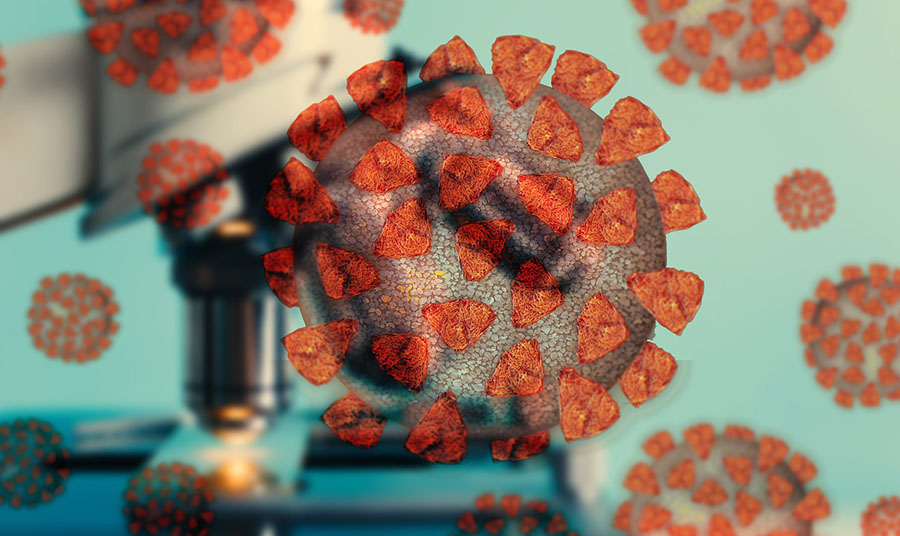Marinus Pharmaceuticals Inc. (MRNS:NASDAQ), which is focused on developing medicines to treat rare seizure disorders, yesterday announced "positive top-line results from its registrational Phase 3 clinical trial Marigold Study evaluating the use of oral ganaxolone in children and young adults with CDKL5 deficiency disorder (CDD), a rare, genetic epilepsy with refractory seizures."
The Phase 3 double-blind Marigold Study enrolled 101 patients who were children and young adults between the ages of 2 to 21 with a confirmed, disease-related CDKL5 gene variant. After a 6-week baseline period, in addition to their existing anti-seizure treatment, trial participants were randomized to receive either oral ganaxolone or placebo for 17 weeks. The firm stated that patients who were given ganaxolone in the Phase 3 trial showed a significant 32.2% median reduction in 28-day major motor seizure frequency, versus only 4% for those who received a placebo. The company added that ganaxolone met its primary efficacy endpoint in the study and was generally well tolerated.
Marinus Pharmaceuticals advised that based upon the results obtained in the trial "it plans to submit a New Drug Application (NDA) for ganaxolone in the treatment of CDD to the U.S. Food and Drug Administration (FDA) in mid-2021 and a Marketing Authorization Application (MAA) for ganaxolone for the treatment of CDD to the European Medicines Agency (EMA) by the end of Q3/21."
The company's CEO Scott Braunstein, M.D., commented, "The Marigold Study has two important firsts. It's the first double-blind placebo controlled study providing evidence of efficacy specific to CDD and the first Phase 3 trial to examine three times a day dosing of ganaxolone in pediatric patients...We believe we are one step closer to providing the first treatment indicated for CDD, and plan to continue our investments in the oral ganaxolone franchise."
Marinus Pharmaceuticals' Chief Medical Officer Joe Hulihan M.D., remarked, "Today's success with ganaxolone in CDD will pave the way for us to accelerate our clinical studies in tuberous sclerosis complex and possibly other rare pediatric epilepsies as well."
Scott Demarest, M.D., principal investigator (PI) at Children's Hospital Colorado, PI of the International CDKL5 Clinical Research Network (ICCRN) and assistant professor of pediatrics-neurology at the University of Colorado, remarked, "CDD is a severe genetic epilepsy that can cause hundreds of seizures for patients each day...Existing antiepileptic medications fail to produce an adequate and durable response in the majority of patients. The positive results from Marinus' trial demonstrate that ganaxolone can provide significant seizure reduction in patients with CDD, an important advance for the CDD community."
The company advised that "it has received a Rare Pediatric Disease (RPD) Designation from the FDA for ganaxolone for the treatment of CDD...and that if a NDA for ganaxolone in CDD is approved, Marinus may be eligible to receive a priority review voucher from the FDA."
The firm explained that "CDKL5 deficiency disorder (CDD) is a serious and rare genetic disorder that is caused by a mutation of the cyclin-dependent kinase-like 5 (CDKL5) gene, located on the X chromosome. CDD is characterized by early-onset, difficult-to-control seizures and severe neuro-developmental impairment."
In a separate news release, Marinus Pharmaceuticals announced yesterday that "it has entered into a five-year development contract with the Biomedical Advanced Research and Development Authority (BARDA), part of the Office of the Assistant Secretary for Preparedness and Response within the U.S. Department of Health and Human Services, to support the development of IV ganaxolone for the treatment of refractory status epilepticus (RSE), a life-threatening condition in which a significant number of patients do not respond to first- and second-line anticonvulsant drugs."
The company stated that RSE can result from several serious, acute medical conditions or after exposure to nerve agents. The agreement stipulates that that BARDA will provide subject matter expertise and $21 million to fund the company's planned Phase 3 clinical trial of ganaxolone for the treatment of RSE on a cost share basis. BARDA will also offer funding for preclinical studies of ganaxolone in nerve agent exposure animal models.
Under the terms of the agreement, if favorable outcomes are achieved, BARDA may fund an additional $30 million to support manufacturing, supply chain, clinical, regulatory and toxicology activities. In the event that all development options successfully come to fruition, Marinus will be responsible for cost-sharing in the amount of $33 million.
Marinus' CEO Dr. Scott Braunstein stated, "On behalf of the entire Marinus team, we are grateful to BARDA for their collaborative approach throughout this process and for the opportunity to continue to innovate in the field of seizure disorders, while supporting the government's efforts to be prepared to protect U.S. lives in the event of a chemical attack...Through this contract, we are demonstrating our commitment to develop innovative anticonvulsant agents, and we believe this funding will help to strengthen our ganaxolone franchise."
BARDA Acting Director Gary Disbrow, Ph.D., added, "Having medical products at-the-ready to save lives in emergencies requires strong public-private partnerships...To help our country respond effectively to public health threats and be cost-efficient, we look for product candidates that can fill a need on the commercial market as well as meet public health emergency needs."
Marinus Pharmaceuticals is headquartered in Radnor, Penn., and concentrates its efforts on the development of innovative therapeutics to treat rare seizure disorders. The company is presently conducting a Phase 3 trial in children with CDKL5 deficiency disorder, a Phase 2 trial in tuberous sclerosis complex and a Phase 2 biomarker driven proof of concept trial in PCDH19-related epilepsy. The firm indicated that it is also has plans to initiate a Phase 3 trial in refractory status epilepticus.
Marinus Pharmaceuticals Inc. (MRNS:NASDAQ) began the day with a market capitalization of around $257.8 million with approximately 122.2 million shares outstanding and a short interest of about 12.1%. MRNS shares opened 58% higher today at $3.34 (+$1.23, +58.29%) over yesterday's $2.11 closing price and reached a new 52-week high price this morning of $4.07. The stock has traded today between $2.98 and $4.07 per share and is currently trading at $3.18 (+$1.07, +50.71%).
[NLINSERT]Disclosure:
1) Stephen Hytha compiled this article for Streetwise Reports LLC and provides services to Streetwise Reports as an independent contractor. He or members of his household own securities of the following companies mentioned in the article: None. He or members of his household are paid by the following companies mentioned in this article: None.
2) The following companies mentioned in this article are billboard sponsors of Streetwise Reports: None. Click here for important disclosures about sponsor fees.
3) Comments and opinions expressed are those of the specific experts and not of Streetwise Reports or its officers. The information provided above is for informational purposes only and is not a recommendation to buy or sell any security.
4) The article does not constitute investment advice. Each reader is encouraged to consult with his or her individual financial professional and any action a reader takes as a result of information presented here is his or her own responsibility. By opening this page, each reader accepts and agrees to Streetwise Reports' terms of use and full legal disclaimer. This article is not a solicitation for investment. Streetwise Reports does not render general or specific investment advice and the information on Streetwise Reports should not be considered a recommendation to buy or sell any security. Streetwise Reports does not endorse or recommend the business, products, services or securities of any company mentioned on Streetwise Reports.
5) From time to time, Streetwise Reports LLC and its directors, officers, employees or members of their families, as well as persons interviewed for articles and interviews on the site, may have a long or short position in securities mentioned. Directors, officers, employees or members of their immediate families are prohibited from making purchases and/or sales of those securities in the open market or otherwise from the time of the decision to publish an article until three business days after the publication of the article. The foregoing prohibition does not apply to articles that in substance only restate previously published company releases.
6) This article does not constitute medical advice. Officers, employees and contributors to Streetwise Reports are not licensed medical professionals. Readers should always contact their healthcare professionals for medical advice.



























































